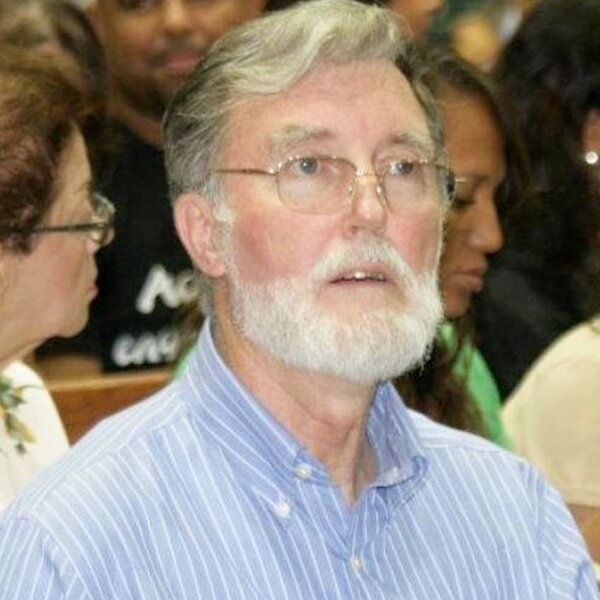Acts, Reconciliation, and the Urban Church
By Dr. Viv Grigg
If you’re from the US, over the past several years you might have concluded that the Evangelical Church in America is against racial reconciliation. But the scriptures give us a very, very different understanding. Reconciliation is central to the whole development of the church. It is central to evangelism. Central to revival. Reconciliation is the very heart and soul of the Gospel message, and is empowered by the Holy Spirit.
How does one come to that conclusion? Simply sit down in your armchair, pick up your Bible, and read through the book of Acts. There are 28 chapters - you can do it in one evening, and it’s life changing. Acts is a book about the progression of the church from being a local movement of Jewish people to becoming a global, multi-ethnic movement. Within that are the dynamics of how diverse ethnic peoples become reconciled in Christ.
Let’s explore a couple of key passages.
The Mandate
It begins in Acts 1:8, where Jesus is speaking and he declares “But you will receive power when the Holy Spirit comes on you; and you will be my witnesses in Jerusalem, and in all Judea and Samaria, and to the ends of the earth.” This mandate is for his ministry, his disciples’ ministry, and the ministry of all who follow Jesus. And then, after giving this mandate, he was taken up before their very eyes. These were his last words to his followers, and they were about reaching the earth – ALL of the peoples of the earth. All of the ethnicities of the earth. All of the cities of the earth. All of the nations of the earth.
Pentecost: Reversing the Tower of Babel
The dynamics of reconciliation across all ethnic and linguistic divisions is directly connected to the revival and the presence of the Holy Spirit. Let’s look at Acts 2:1-12, which takes place in the urban center of Jerusalem.
These people in the crowd were likely people who converted to Judaism, or traders, and they’re hearing languages from all corners of the world. When you graph it, starting in Jerusalem and drawing lines to where each language was spoken, you see that these these lines branch out in every direction. This is the reversal of the Tower of Babel. This is the reversal of that time when God came to earth and he split the languages of the earth apart. Here, we see God bringing unity to the languages of the earth through the presence of the Holy Spirit as a sign. As a grand sign.
Right at the beginning of the book of Acts, we have this emphasis on reconciliation, on moving across the cultural divides. You can imagine the impact of that experience on the Apostles! They knew everyone was speaking in different languages, supernaturally. They mused on it over time, and it comes up later in Acts.
Holy Spirit Moves, Divisions are Healed
In Chapter 10, there’s a Roman centurion who loved God and was a good man. Peter, a devout Jewish man who’s perhaps a bit rural and traditional, has a vision. In this vision, he is called to this centurion’s house. And he goes. Even though the house is unclean for him as a Jew, he enters, and he begins to speak of the Lord. As Peter speaks, the Holy Spirit falls, just as it had at Pentecost, and they all begin speaking in tongues. This seems to be a sign that the Holy Spirit could fall as they crossed over barriers, and that’s often the case, not just with speaking in tongues but also with signs. Deliverance often occurs as we cross barriers with ethnic groups and penetrate new areas.
Peter goes back to the Apostles full of excitement and tells them what happened, describing it in great detail. As he describes his vision and the events that followed, Peter said, “I remembered that John baptized with water but you’ll be baptized with the Holy Ghost. So if God gave them the same gift that he gave us in Jesus Christ, who am I to think that I can oppose God?” When the Apostles heard this, they had no further objections.
Quite a meeting of the church leadership! The church had now become a global church. The mindset was there, they understood Jesus’ Great Commission, they understood the way Jesus had treated people of other nationalities, and they understood that the Great Commission was to the ends of the earth. That was confirmed by the work of the Holy Spirit.
So, we see the correlation between the work and the falling of the Spirit on groups of people with reconciliation across ethnic divides. We see this also in the gathering of the Apostles as they debate an issue and the Spirit giving them a sense of unity. He is the Spirit of unity.
This blog is part of a series on reconciliation found in the MATUL course TUL500: Visions for the Ideal City. You can find related videos at Dr. Viv Grigg’s Vimeo page
Dr. Viv Grigg is Professor of Urban Leadership at WCIU, having worked in the slums and multiplied church movements for four decades. He is the Program Director for the M.A. in Transformational Urban Leadership (MATUL) at WCIU.

